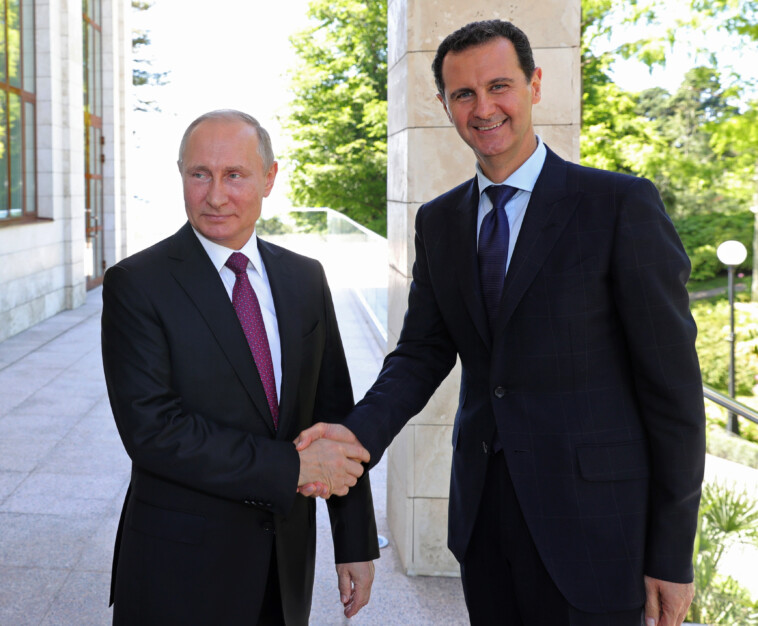DAMASCUS, Syria — Ousted Syrian President Bashar Assad fled to Moscow on Sunday, Russian media reported, hours after a stunning rebel advance took over the capital of Damascus and ended the Assad family’s 50 years of iron rule.
The Russian agencies, Tass and RIA, cited an unidentified Kremlin source on Assad and his family being given asylum in Moscow, his longtime ally and protector. The Associated Press was not immediately able to verify the reports but contacted the Kremlin for comment.
RIA also said Moscow had received guarantees from Syrian insurgents of the security of Russian military bases and diplomatic posts in Syria.

Assad reportedly left Syria early Sunday, and Syrians have been pouring into streets echoing with celebratory gunfire after a stunning rebel advance reached the capital, ending the Assad family’s 50 years of iron rule.
The swiftly moving events have raised questions about the future of the country and the wider region. Russia has requested an emergency session of the U.N. Security Council discuss the situation in Syria, Russia’s first deputy permanent representative to the U.N., Dmitry Polyansky, posted on Telegram.
Joyful crowds gathered in squares in Damascus, waving the Syrian revolutionary flag in scenes that recalled the early days of the Arab Spring uprising, before a brutal crackdown and the rise of an insurgency plunged the country into a nearly 14-year civil war.
Others gleefully ransacked the presidential palace and residence after Assad and other top officials vanished.
Abu Mohammed al-Golani, a former al-Qaida commander who cut ties with the group years ago and says he embraces pluralism and religious tolerance, leads the biggest rebel faction and is poised to chart the country’s future.
In his first public appearance since fighters entered the Damascus suburbs Saturday, al-Golani visited the sprawling Umayyad Mosque and called Assad’s fall “a victory to the Islamic nation.” Calling himself by his given name, Ahmad al-Sharaa, and not his nom de guerre, he told hundreds of people that Assad had made Syria “a farm for Iran’s greed.”
The rebels face the daunting task of healing bitter divisions in a country ravaged by war and still split among armed factions. Turkey-backed opposition fighters are battling U.S.-allied Kurdish forces in the north, and the Islamic State group is still active in some remote areas.
Syrian state television broadcast a rebel statement early Sunday saying Assad had been overthrown and all prisoners had been released. They called on people to preserve the institutions of “the free Syrian state.” The rebels later announced a curfew in Damascus from 4 p.m. to 5 a.m.
The rebels said they freed people held at the notorious Saydnaya prison, where rights groups say thousands were tortured and killed. A video circulating online purported to show rebels breaking open cell doors and freeing dozens of female prisoners, many of whom appeared shocked. At least one small child was seen among them.
“This happiness will not be completed until I can see my son out of prison and know where is he,” said one relative, Bassam Masr. “I have been searching for him for two hours. He has been detained for 13 years.”
Rebel commander Anas Salkhadi later appeared on state TV and sought to reassure Syria’s religious and ethnic minorities, saying: “Syria is for everyone, no exceptions. Syria is for Druze, Sunnis, Alawites, and all sects.”
“We will not deal with people the way the Assad family did,” he added.

